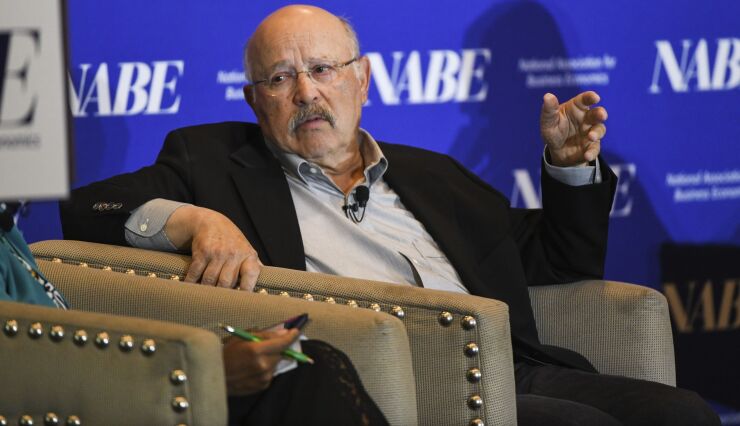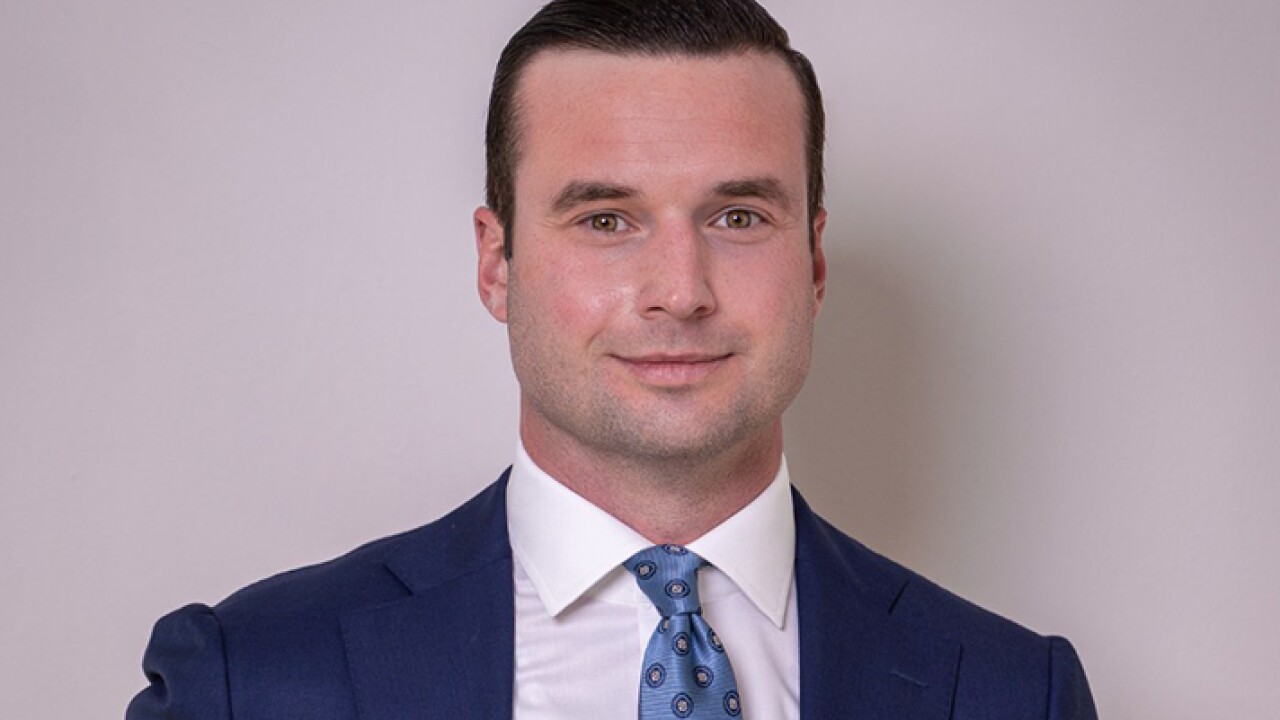Cumberland Advisors is proposing the creation of a new municipal security to help state and local governments across the country recover economically after the COVID-19 pandemic.
“We propose the creation of a coronavirus cash-flow deficiency anticipation note. Let’s call it the Coronavirus Anticipation Note, or CAN, for short,” David Kotok, Cumberland's chairman, and John Mousseau, its president, said Wednesday. “We would model the CAN after other types of anticipation notes. That way, the system does not have to ‘discover a new wheel.’ ”
Their proposal would have to get approval at the Federal level — from the Treasury Department, the Federal Reserve and possibly the Congress.

“CAN needs a Federal backup and a rapid issuance method, either through a national pooled vehicle or a state-by-state pooled vehicle. Because of diverse state taxation rules, we believe that the state-by-state method is probably more suitable,” they wrote in a market note.
Cumberland said the federal government could backstop a state with a U.S. Treasury guarantee and then that guarantee could be pooled.
"The states can determine allocation to cities and counties and to local or state agencies. Most states have such allocation mechanisms already in place for their various budgets and services," they said, adding the CANs would have state income tax-exemption in the state where they are issued and would be exempt from federal taxes.
“The CAN proposal seeks a federal backstop. Under normal circumstances I would say this would not be forthcoming because it would be viewed as a handout,” said John Hallacy, Bond Buyer contributing editor. “However, we are in extraordinary circumstances. What is needed is a champion in Congress and at the Treasury with support from the Fed to achieve such a program.”
Cumberland said that note issuance has had a long and successful history in the municipal market.
“We are already used to tax anticipation notes, bond anticipation notes, revenue anticipation notes tax increment financing and various other types of financing instruments which raise money now and then get repaid after an event is completed or a project is fulfilled or some other target goal is met,” they said.
“Cash flow is always a key consideration,” Hallacy said. “Borrowing to cover an imbalance on a short-term basis is a long-standing proven practice. The challenge now is creditworthiness is challenged.”
State and local governments are facing a cash-flow crunch under the present emergency conditions, which limit or eliminate many reveue streams. Cumberland argues that this type of short-term security would help alleviate the problem and let municipalities recover more quickly once the danger had passed and things return to normal.

“The idea is to provide a bridge loan to a municipal entity to cover the shortfall in its cash flow during the crisis period. The entity can issue CANs to fill the gap,” they wrote. “When we get to the other side of this crisis, the CANs can be repaid from revenues, or they can be ‘termed out’ into longer-term bonds with easy amortization.”
Hallacy said federal government acceptance would be key.
“CAN is a good branding tool. I am less sanguine about converting short-term CAN notes to longer-term bonds,” he said. “If they kept the bond maturity to 10 years or less, I would be more comfortable with the proposal. Perhaps, we can work this very targeted proposal into Phase 4.”
Last month, New York City Council Speaker
Johnson would like to have a plan paid for by the federal government, but said the city could sell bonds if Washington doesn’t step up.
He added that a new revenue stream would be needed to pay for the bonds.

“To issue these bonds, our city is going to need new revenue streams. We should ask the wealthiest corporations and people, those who are most able to weather this storm, to chip in a bit more,” Johnson said. “That could be in the form of a temporary payroll tax, a surcharge on high-end commercial property, or a small tax increase on personal income over $500,000 a year.”
And in an interesting development in Europe, the Nordic Investment Bank this week issued the first “response bond” of 1 billion euros to counteract the adverse economic effects from the COVID-19 pandemic.
The bonds will fund loan transactions that will help member countries and certain sustainable businesses in Europe, which are facing dire financial consequences due to the coronavirus.
In the public sector, proceeds will be used to pay for increased capacity in healthcare services; a temporary increase in social expenditures, such as unemployment and healthcare; and government spending to help some companies in temporary need of help.
In the private sector, proceeds will help large firms in the medical equipment and healthcare sector facing increasing demand for equipment or services related to the pandemic and to companies in the infrastructure sector that need money due to operation and supply line disruptions.
The new response bond had a zero percent coupon and is due April 6, 2023; it saw the largest order book for an NIB euro-denominated benchmark at 3.2 billion euros.
Meanwhile, the International Capital Market Association has issued a
“All types of issuers in the debt capital markets can issue a social bond related to COVID-19, as long as all the four core components of the social bond principles are addressed,” the ICMA said, “and that the use of proceeds of the bond go exclusively towards addressing or mitigating social issues wholly or partially emanating from the coronavirus outbreak.”





